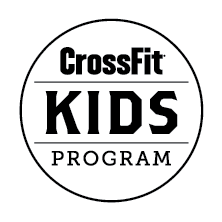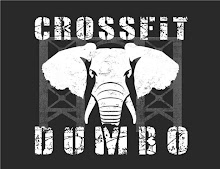
Water, what is it good for?
Written by George Economou
Grass fed beef – check.
Free range chicken – check.
Fish oil – check.
Organic veggies – check.
Water – …
Fun Facts:
*Over 2/3 of the world is covered with water, and only about 3% of that is fresh water. Of that 3%, only 1% is drinkable.
*In the U.S., 80% of residential water goes to landscaping.
*Right now, you can go to Amazon and buy 3 gallons of Fiji water for 39.95. Or 3 gallons of gas will cost you around $9.50.
*Under OPTIMAL conditions, you can survive for up to 30 days without food, but only 4-10 days without water.
Water and Health
Your body is composed of 60-75% water, by far a greater percentage of your body than any of the macronutrients. Heart, lungs, kidneys and blood are all about 80% water; muscles, intestine and brain are about 75% water. In order for these parts of the body to work optimally, they need their share of the water. Considering how much blood is comprised of water, a major concern for dehydration is a reduced blood volume and, therefore, a reduced ability to:
*Transport oxygen-rich red blood cells to muscle and tissues, and remove CO2 and other waste products.
*Transport nutrients to cells: glucose, fats and amino acids…those veggies, fish oil and grass fed beef you’ve been so diligent on ingesting.
*Transport and regulate hormones.
Paul Chek makes a pretty good analogy:
“Imagine your intestines being like a riverbed. When there’s a lot of water flowing through them, the fish are happy. They swim better, and the whole system works as it should. In the human body, the fish are like the digestive enzymes, which need enough water to swim about and make the whole process of digestion works as it should. If there’s not enough water, the enzymes have a hard time getting around, and that means poorer absorption of muscle-building nutrients. Keep your fish swimming effectively and drink water with every meal.”
Water and Fitness
We’ve probably all felt the effects of poor hydration while on a run or a conditioning workout, but did you know there’s a significant link between dehydration and strength loss?
Legendary strength coach Charles Poliquin has this to say about water:
“Hydration is the greatest determinant of strength. A drop of 1.5% in water levels translates in drop of 10% your maximal strength. The leaner you are, the worse it is. Make sure you weigh the same or more at the end of your training session. High water levels = more sets & reps = greater changes.”
Another consideration for dehydration is the role water plays as your body’s coolant. Without proper hydration, our body cannot regulate its core temperature, which can lead to some disastrous consequences: fatigue, heat exhaustion, heatstroke and possibly death. Our men and women in uniform are very familiar with the military’s recommendation for water consumption in a hot environment: one liter of water per hour while training.
But let’s assume you are not in the military or in the desert…how much water should you drink? Dr. F. Batmanghelidj (Your Body’s Many Cries for Water) recommends the following: Bodyweight(lbs)/2 = how many ounces a day. So if I weigh 160lbs, that’s 80 ounces a day, or about 10 glasses of water, or 2 ½ Nalgene Bottles, or 2 Super Big Gulps. Poliquin recommends 0.6 – 0.7 ounces per pound of bodyweight.
Relative to WHEN you exercise, here’s my (and the NSCA) recommendation:
*Prior to training – drink at least 16 ounces a couple hours before exercise.
*During training – keep water handy and drink 6-8 ounces every 15 minutes. *I would recommend holding off on taking a water break during a conditioning workout, especially if it’s less than 15 minutes.
*After training – try to replace the fluids you lost within an hour of finishing.
Helpful Drinking Tips
*Don’t wait until you’re thirsty to drink. If you wait that long, you’re already slightly dehydrated.
*Have a bottle of water around you all the time. Keep one at work, in your car, wherever you spend significant amounts of time during your day. Get used to drinking water throughout the day.
*Get used to drinking water before and after exercising.
*Avoid chlorinated and fluoridated water. More on this later.
*Learn to read your urine. Your pee should be relatively clear. The darker the pee, the more water you need to drink. Your pee should be it’s darkest the first evacuation of the day, aka, morning pee.
*Another great Chek quote:
“There’s an old Tibetan saying, “Drink your food and chew your water.” That means you should chew your food until it’s a liquid, and when you drink a liquid you shouldn’t just slam it. You should move it around your mouth as though it was food because that mixes saliva with the water.”
Post thoughts to comments.




No comments:
Post a Comment